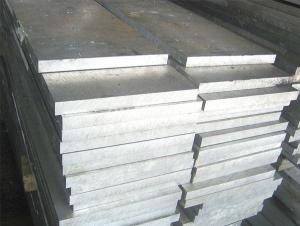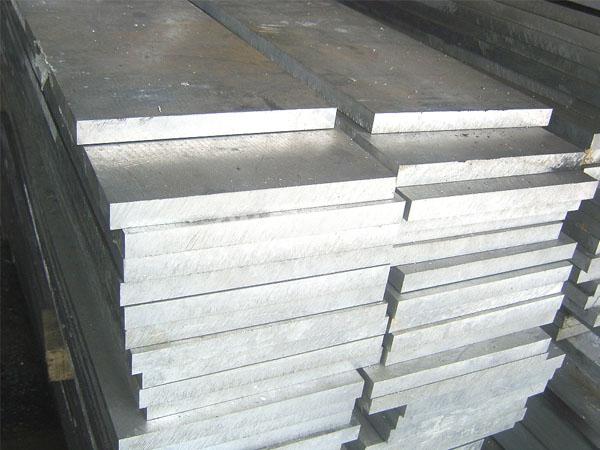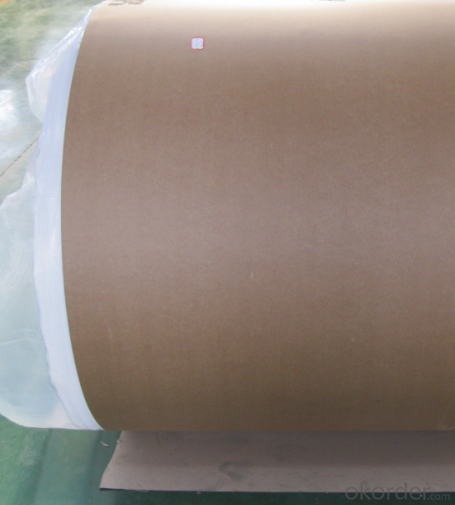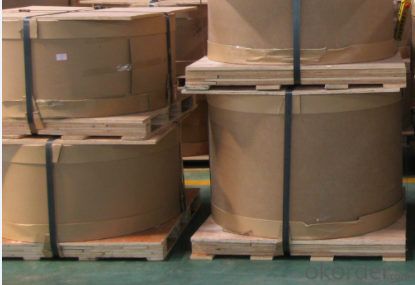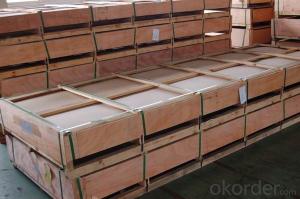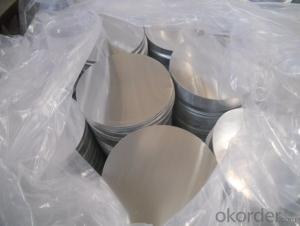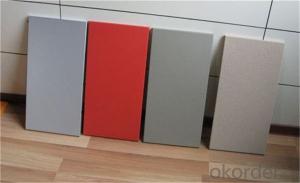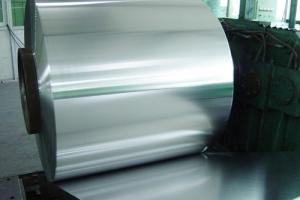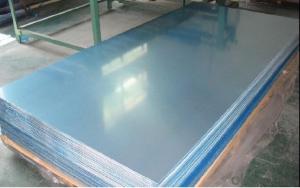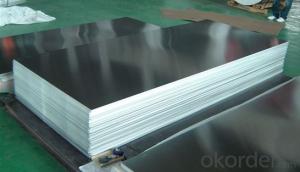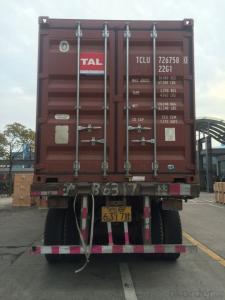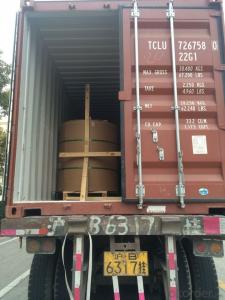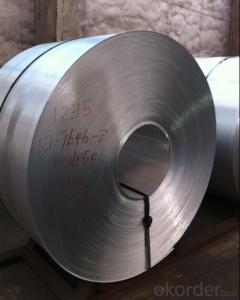Natural Aluminum Baking Sheets - Aluminum Alloy Plate Stocks in Warehouse with Best Price
- Loading Port:
- Shanghai
- Payment Terms:
- TT or LC
- Min Order Qty:
- 9 m.t.
- Supply Capability:
- 4000 m.t./month
OKorder Service Pledge
OKorder Financial Service
You Might Also Like
1.Structure of Product Description
Cold rolled aluminum sheet is widely used in the field of construction field and decoration field, etc.
There are many different grades, such as: 1000 series, 2000 series, 3000 series, 5000 series, 6000series, etc. The detailed grade are as follows: 1010, 1050,1060,1100, 2024, 3003, 3005, 3105, 5052,5754,5083,6061,6063,8011, etc.
The temper is include H14, H22, H24, H44,H112,H114,etc.
2. Main features of the product
a.Competitive price
b.Frist-Class Service.
c. Shortest service.
3. Image.
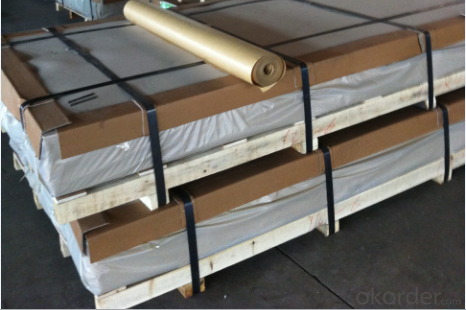
4. Product detailed sizes:
1000mm*2000mm, 1219mm*2438mm,1220mm*2440mm, 1250mm*2500mm,1500mm*3000mm, etc.
5. FAQ:
What is the quality standard?
---Usually our standard is GB3880-2006 or others.
What is the width range?
---It is from 1000mm to 2500mm, etc.
What is the length range:
---It is from 2000mm to 6000mm, etc.
What is the MOQ for your products yet?
---Normally it is around 5 tons/each size.
---Normally they are aluminum sheet, checkered sheet, mirror finish aluminium sheet, aluminum casting coil, etc.
- Q: Can aluminum sheet be painted?
- Yes, aluminum sheet can be painted. However, it is important to properly prepare the surface by cleaning, sanding, and priming it before applying any paint. This will ensure better adhesion and durability of the paint on the aluminum sheet.
- Q: I'm trying a new brownie recipe for the holidays this year. My experiences with baking brownies is never good. After I've taken them out of the oven and let them cool, I can never get them out of the pan without them falling apart on me! Can I bake brownies in the pan if it's lined with aluminum foil? I think that may make them easier to get out. Also, the new recipe I'm trying is actually a cheater recipe that starts with devils food cake mix. These are going to be gifts for friends and coworkers, and I just want perfectly squared, clean brownies! Any tips or ideas?
- Foil Lined Baking Pan
- Q: The only materials i can use is iodine, water, HCl, magnet, and pH paper. How do you identify aluminum with that?
- To start with, are you refering to aluminum as metal, an aluminum compound, or a solution with aluminum present as ions? If it is metaallic aluminum, it won't stick to a magnet, and it will react with HCl, however this isn't sufficient to definately say it is aluminum, it would be better to get a density, melting point, etc.
- Q: What are the dimensions of 101 aluminum sheets?
- The dimensions of 101 aluminum sheets can vary depending on the specific requirements or specifications. Generally, aluminum sheets come in standard sizes and thicknesses, such as 4 feet by 8 feet or 3 feet by 10 feet, with thicknesses ranging from 0.02 inches to 0.25 inches. It is important to note that custom sizes and thicknesses can also be obtained based on individual needs and preferences.
- Q: What are the weight limitations for aluminum sheets in different applications?
- The weight limitations for aluminum sheets vary depending on the specific application. Factors such as the thickness, alloy, and intended usage play a significant role in determining the maximum weight that aluminum sheets can support. It is essential to consult the manufacturer's specifications or engineering professionals for the precise weight limitations in different applications.
- Q: Are aluminum sheets suitable for use in cryogenic environments?
- Certainly, aluminum sheets prove to be a fitting choice for utilization in cryogenic surroundings. With its exceptional thermal conductivity and low density, aluminum emerges as an optimal substance for cryogenic purposes. It can endure exceedingly cold temperatures while maintaining its structural integrity and avoiding noticeable thermal expansion. Moreover, aluminum exhibits commendable resistance against corrosion and can be conveniently fashioned into diverse configurations and sizes. These attributes render aluminum sheets widely employed in cryogenic systems, including cryostats, superconducting magnets, and liquid nitrogen storage tanks.
- Q: We just bought a house with aluminum wiring and we knew about it in the inspection report, but everyone kept telling us it's no big deal. There was so much going on and I didn't look into it myself and now I just surfed the web on it and I am filled with anxiety! Please help! Did we make a huge mistake? How common are the dangers? Also, my insurance company didn't ask me about wiring, but some sites said that they don't cover aluminum wiring. Should I ask them? I am so overwhelmed and scared. I do not want a fire for my family!
- The aluminum is a soft metal and compresses and tends to loosen at the wire connections. It was probably installed properly with the semi compound and is probably ok. But the connections could be loose and cause a hot junction over heat in your service breaker box (Load Center). Every connection in the panel could be tightened a Quarter or half turn to snug them up by an electrician in just thirty minutes or so. and ease your concerns. Pay attention when he does and see if they turned or were still snug. this will give you insight into when to re check them a year or so down the line.
- Q: Can aluminum sheets be used for signage purposes?
- Indeed, signage purposes can be fulfilled by utilizing aluminum sheets. The signage industry often relies on aluminum, a highly adaptable and enduring material. Renowned for its lightweight nature, corrosion resistance, and exceptional weather resilience, aluminum is an ideal choice for both indoor and outdoor signage. By effortlessly cutting and molding aluminum sheets, one can fashion diverse sizes and designs for signs. These sheets can be painted, coated, or printed upon to exhibit logos, text, or graphics. Moreover, aluminum signs are economically advantageous and possess a prolonged lifespan, rendering them a favored option for businesses, construction sites, road signs, and various other signage applications.
- Q: How do aluminum sheets perform in terms of formability?
- Aluminum sheets possess remarkable formability, renowned for their capability to be effortlessly molded and contoured into intricate configurations without encountering any cracks or fractures. The exceptional ductility and malleability of aluminum enable its transformation into diverse shapes, curves, and angles with relative simplicity. This inherent formability renders aluminum sheets highly adaptable for utilization in an array of applications, including automotive body panels, aircraft components, and architectural structures. Moreover, aluminum sheets exhibit commendable resistance to corrosion, further augmenting their performance in various environmental conditions. All in all, aluminum sheets amalgamate formability, strength, and durability, rendering them a favored choice across numerous industries.
- Q: How do I join aluminum sheets together?
- There are several methods you can use to join aluminum sheets together, depending on the specific application and desired outcome. Here are a few common techniques: 1. Riveting: Riveting involves using rivets, which are small metal fasteners, to join the aluminum sheets. This method requires drilling holes into the sheets and then inserting the rivets, which are then permanently secured by deforming or compressing them. Riveting is a durable and widely used method for joining aluminum sheets. 2. Welding: Aluminum welding can be done using various techniques such as gas tungsten arc welding (GTAW), gas metal arc welding (GMAW), or laser welding. These methods melt the aluminum at the joint, allowing it to fuse and form a strong bond when cooled. Welding requires specialized equipment and expertise, but it provides a robust and permanent joining solution. 3. Adhesive bonding: This method involves using industrial-grade adhesives specifically designed for bonding aluminum. The adhesive is applied to the surfaces to be joined, and then the sheets are pressed together and allowed to cure. Adhesive bonding offers a clean and aesthetically pleasing joint, but it may not be suitable for high-stress applications. 4. Mechanical fasteners: Using screws, bolts, or nuts is another option to join aluminum sheets. This method involves drilling holes in the sheets and using fasteners to secure them together. Mechanical fasteners provide a strong and adjustable joint, making it easier to disassemble if needed. Before selecting a joining method, consider factors such as the application's strength requirements, appearance, ease of assembly, and disassembly. Additionally, it is essential to follow safety guidelines and consider seeking professional advice if you are unsure about which method to use or lack experience with joining aluminum sheets.
Send your message to us
Natural Aluminum Baking Sheets - Aluminum Alloy Plate Stocks in Warehouse with Best Price
- Loading Port:
- Shanghai
- Payment Terms:
- TT or LC
- Min Order Qty:
- 9 m.t.
- Supply Capability:
- 4000 m.t./month
OKorder Service Pledge
OKorder Financial Service
Similar products
Hot products
Hot Searches
Related keywords
